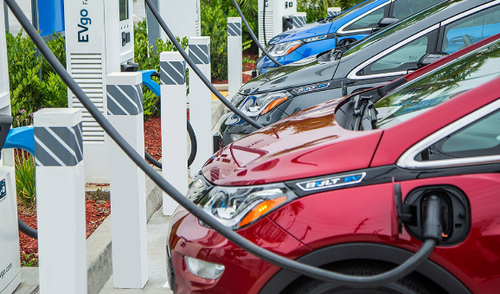When you consider that American car manufacturers quality has been plummeting, this is a significant percentage, and throw in that European and South Korean manufacturer’s quality is abysmal as well with only Japan putting out some quality automobiles. So much for our electric car future that’s been pushed as hard as the “climate change” hoax. Consequently, another interesting wrinkle is some American manufacturers with dwindling quality are trying to charge ridiculous premium prices for their trash ($100k for a Jeep or Ford truck?). You’d have to think in the short term they’re trying to maximize profits before the economy craters and we have the Great Reset.
By Tyler Durden
A new report from Consumer Reports found that electric vehicles have almost 80% more problems and are “generally less reliable” than conventional internal combustion engine cars. Good thing every major government around the world is subsidizing their use in the name of ‘climate change’, right?
Even worse than electric vehicles were plug-in hybrid electric vehicles, which were found to have 150% more issues than traditional ICE vehicles, CBS reported. Ordinary hybrids are the best of the breed, with about 25% less problems than gas cars, the study found.
The study encompassed information from over 330,000 vehicles produced from 2000 to 2023, including a limited number of reports on brand-new 2024 models.
The recent vehicle reliability report from Consumer Reports coincides with a time when car purchasers have the benefit of a federal tax credit of up to $7,500 when buying an electric vehicle.
But, as CBS noted in their summary, the adoption of EVs by consumers has been slower than initially anticipated. One contributing factor to this slower adoption is the higher maintenance costs associated with EVs compared to conventional vehicles, along with the necessity for additional equipment like home electric charging stations.
EV owners most commonly reported issues related to the battery and charging systems, as well as issues with the fit and finish of the vehicle’s body panels and interior components. Consumer Reports observed that EV manufacturers are still in the process of mastering new power systems and suggested that as they gain expertise, the overall reliability of EVs would improve.

Consumer Reports also pointed out that persistent concerns about reliability are likely to compound the challenges that deter many potential buyers from transitioning to EVs. These concerns join existing ones about higher costs, limited availability of charging infrastructure, and extended charging durations associated with EVs.
CBS wrote:
“PHEVs may have more problems than conventional cars and electric vehicles because they combine internal-combustion engines with an electric drive, which creates additional complexity, Consumer Reports said. That means there’s more than can go wrong.”
“Consumer Reports rates vehicles on 20 problem areas, ranging from squeaky brakes to EV charging problems, and PHEVs can experience every one of them, it noted.”
Not all PHEVs were horrible. According to Consumer Reports, the Toyota RAV4 Prime and Kia Sportage received reliability ratings that are above average. In addition, three plug-in hybrid electric vehicles – the BMW X5, Hyundai Tucson, and Ford Escape – achieved scores that were average.
Jake Fisher, senior director of auto testing at Consumer Reports concluded: “This story is really one of growing pains. It’s a story of just working out the bugs and the kinks of new technology.”